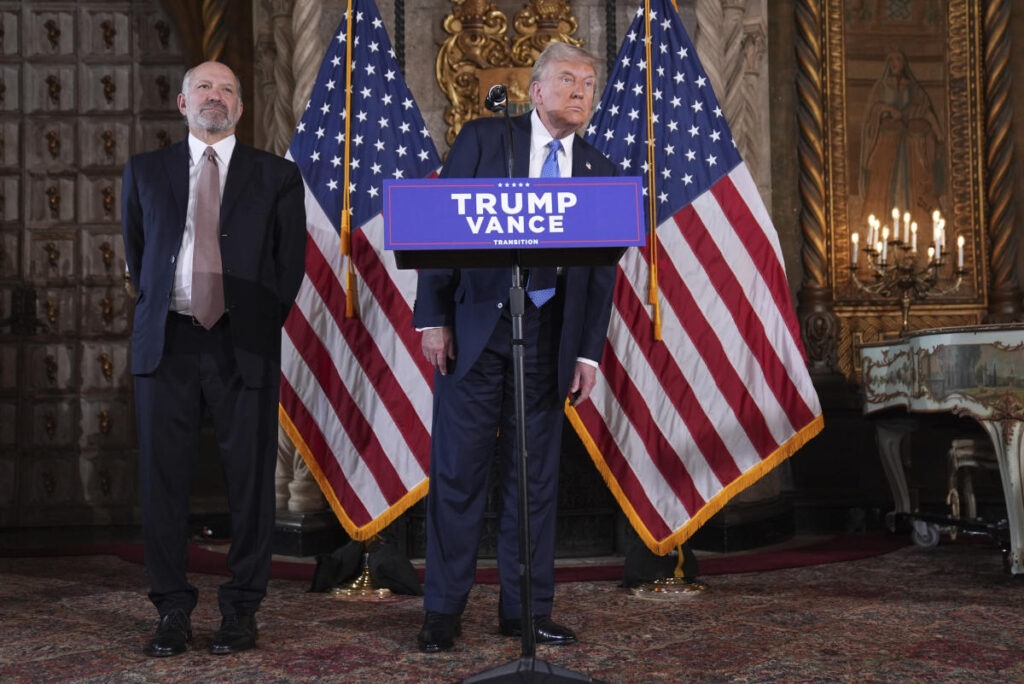In a recent press conference, President-elect Donald Trump addressed various topics, highlighting his commitment to the polio vaccine, questioning the efficacy of some vaccines, and discussing pharmaceutical pricing concerns. This was his first formal interaction with the media since his electoral victory, reminiscent of his extensive news conferences throughout his first term and contrasting sharply with President Joe Biden’s less frequent engagements with the press. During this lengthy session, Trump reassured the public about the availability of the polio vaccine while expressing his personal belief in its importance, despite naming Robert F. Kennedy Jr., a known vaccine skeptic, as his pick for health secretary. Trump claimed, “You’re not going to lose the polio vaccine,” affirming a determination to ensure its continued access.
On the contentious topic of vaccines, Trump echoed sentiments he has voiced in the past regarding a potential link between vaccines and autism, suggesting a need for further investigation into rising autism diagnoses. He referred to Kennedy, insisting that despite his controversial stance, Kennedy is “going to be much less radical than you would think,” portraying him as open-minded. Trump acknowledged the complexity of autism diagnoses, which involve behavioral assessments rather than biological tests, suggesting that the increased identification of autism cases may stem from changes in diagnostic criteria rather than a true rise in the condition itself.
Transitioning to healthcare, Trump addressed rising pharmaceutical costs, attributing the burden to intermediaries within the industry. He recounted a recent dinner with healthcare executives and prominent figures, including Dr. Mehmet Oz, during which they conversed about soaring drug prices. Trump vowed to “knock out the middleman” responsible for inflating costs, claiming ignorance of who these individuals are but noting their substantial wealth. His commitment to confronting this issue sets the stage for a more aggressive approach to healthcare policy once in office.
This press conference also illustrated Trump’s dominance in the political spotlight compared to Biden, who has been quiet and less visible in recent months. Trump’s proactive stance on pressing issues, including the presence of drones in the Northeast, underscores the difference in public engagement strategies between the two leaders. While Trump openly addresses national concerns, Biden’s absence from the media suggests a more cautious approach, leaving aides to publicly manage various issues without his direct involvement.
Regarding the political aspirations of his family, Trump exhibited skepticism about the potential appointment of his daughter-in-law, Lara Trump, to fill the seat of Marco Rubio. Despite acknowledging her previous role at the Republican National Committee, Trump expressed uncertainty about Florida Governor Ron DeSantis’s decision, stating, “I probably don’t, but I don’t know.” His remarks reflect a hesitancy to predict political alignments and appointments while praising Lara’s contributions to the party, particularly concerning election integrity — a persistent theme in Trump’s post-presidency narrative.
Finally, President-elect Trump expressed an open approach to the ongoing concerns surrounding TikTok, indicating a willingness to intervene in the social media platform’s future in the United States. He noted TikTok’s significant role in connecting with younger voters during his campaign, stating, “I have a warm spot in my heart for TikTok.” This suggests that, while he might previously have pushed for a ban during his first term, his perspective appears more favorable now, confronting the potential ban with a more lenient stance aimed at finding a balance between regulation and utility. The comparisons he drew between his pre- and post-election relationships with corporate leaders hinted at a newfound willingness from the business community to engage with him during this new chapter of his political career, which seems to contrast sharply with the challenges he faced during his tenure as president.

